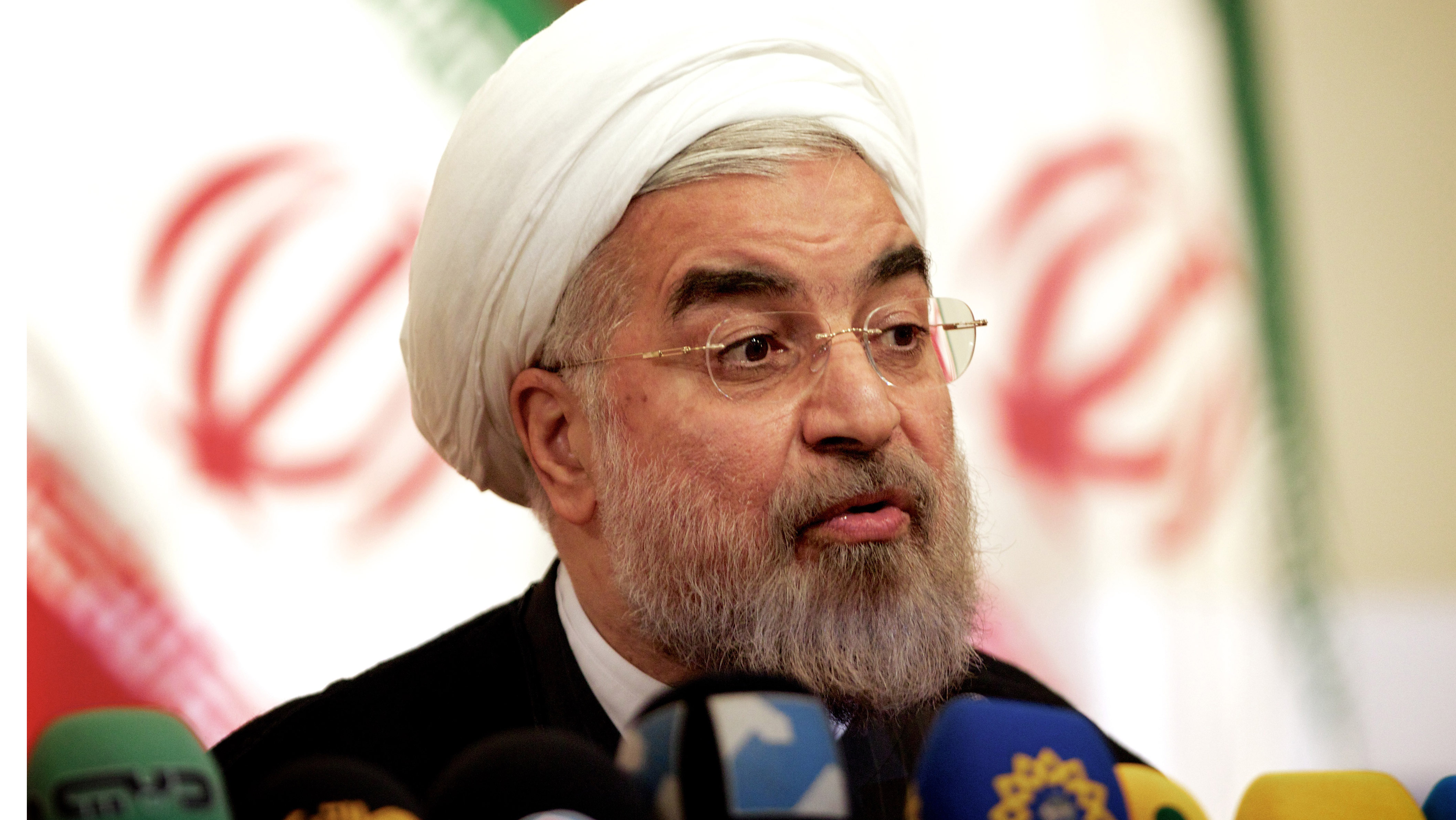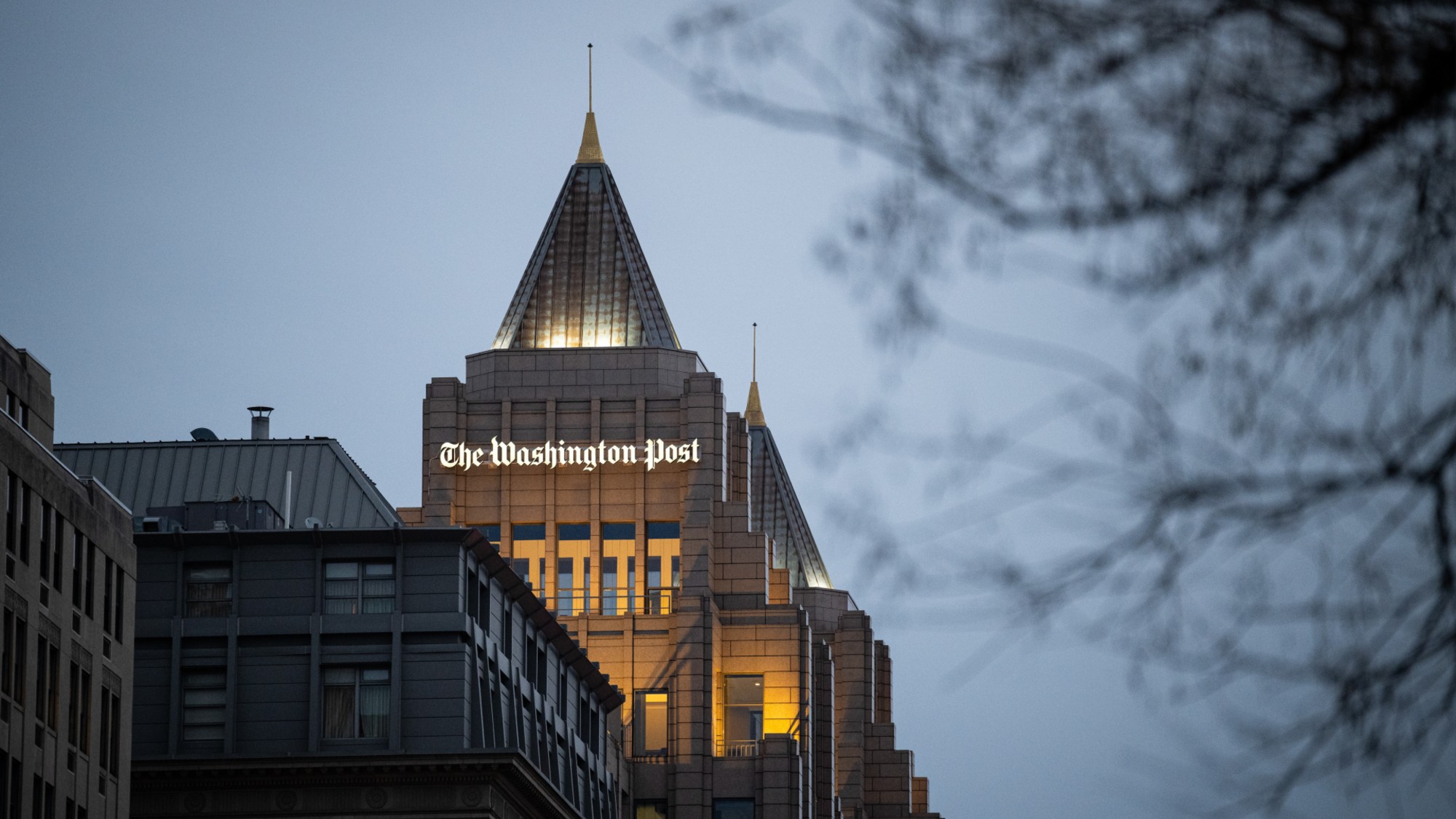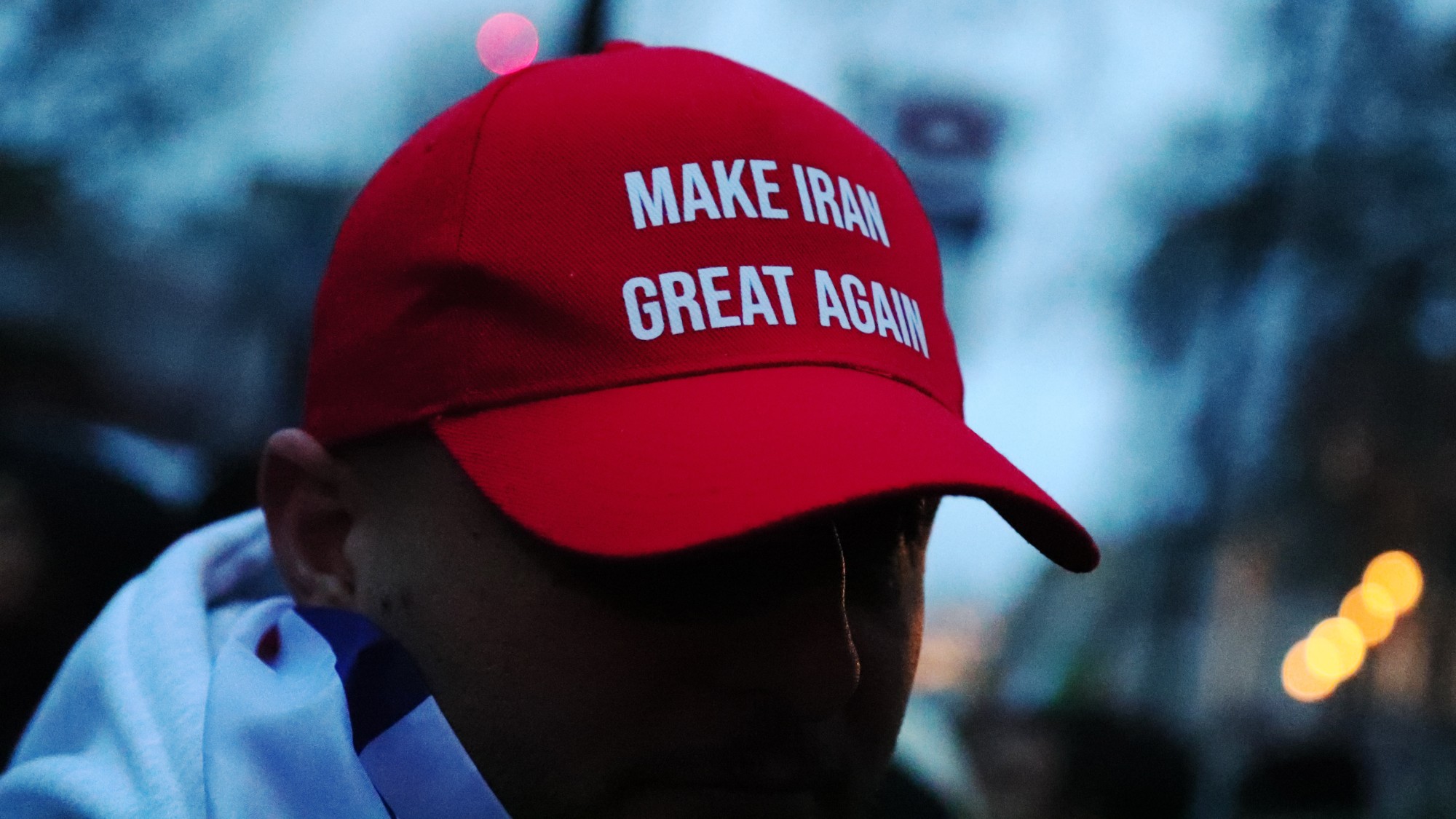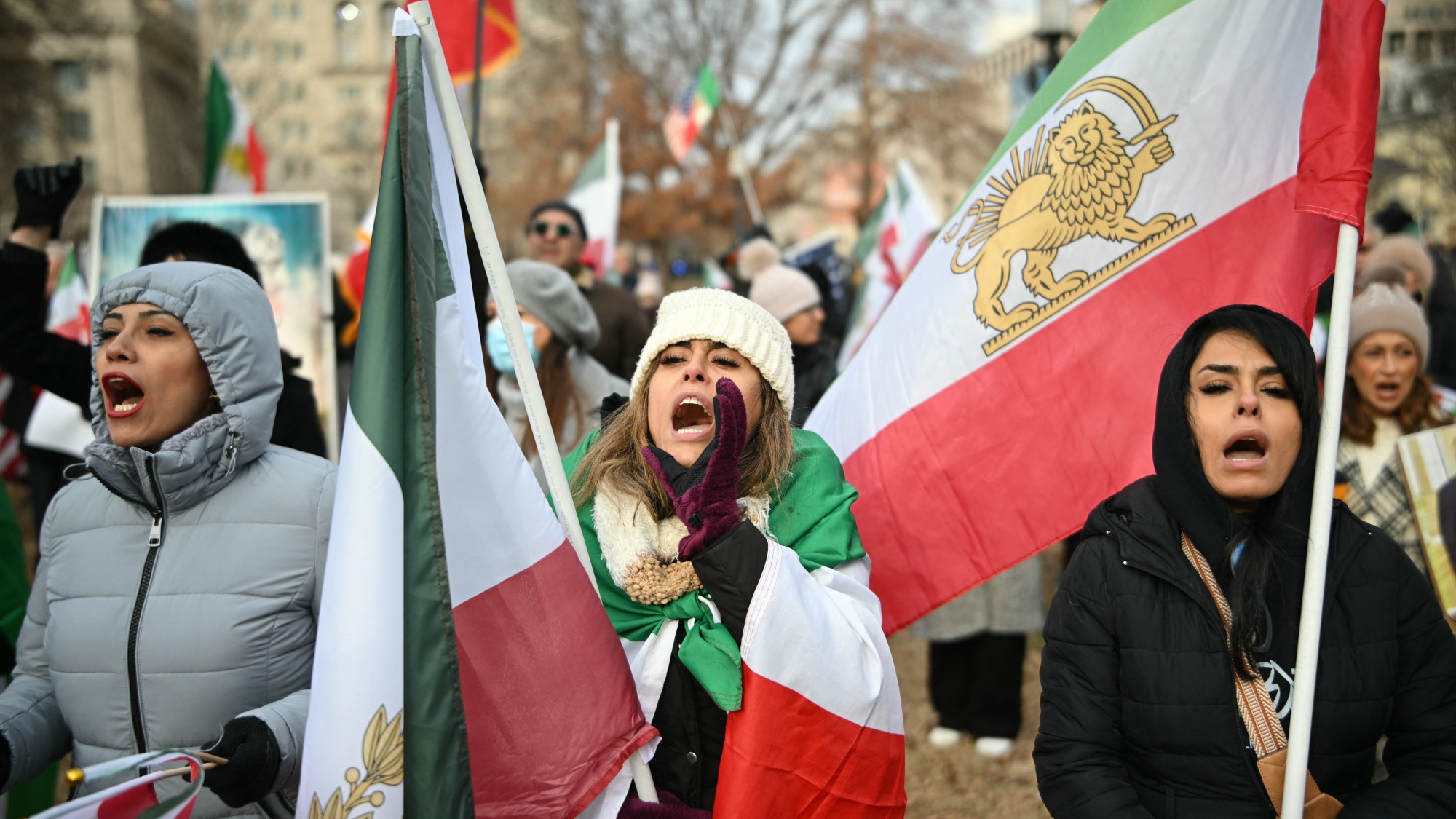US navy on alert as Iran threatens to block Gulf oil route
President Hassan Rouhani calls Trump’s sanctions on his nation ‘incorrect and unwise’

A free daily email with the biggest news stories of the day – and the best features from TheWeek.com
You are now subscribed
Your newsletter sign-up was successful
The US navy is on standby near the Strait of Hormuz after Iran’s military warned it would block all oil shipments through the channel if Washington goes ahead with sanctions against Iranian oil exports.
The strait is the most important oil transit channel in the world, with about a fifth of all oil consumed globally passing through on tankers every day, Reuters reports.
Mohammad Ali Jafari, commander of the Islamic Revolutionary Guard Corps, Iran’s most powerful military force, told Iranian media: “We will make the enemy understand that either all can use the Strait of Hormuz or no one.”
The Week
Escape your echo chamber. Get the facts behind the news, plus analysis from multiple perspectives.

Sign up for The Week's Free Newsletters
From our morning news briefing to a weekly Good News Newsletter, get the best of The Week delivered directly to your inbox.
From our morning news briefing to a weekly Good News Newsletter, get the best of The Week delivered directly to your inbox.
In response, US Navy Central Command spokesperson Bill Urban said that US ships were ready to fulfill their mission to “provide and promote security and stability in the region”.
“Together, we stand ready to ensure the freedom of navigation and the free flow of commerce wherever international law allows,” he added.
As The Guardian notes, the threats “will bring back memories of the latter years of the 1980s Iran-Iraq War, when US forces attacked Iranian territorial waters after a US ship struck an Iranian mine”.
Following a few years of diplomatic stability, US-Iran relations have deteriorated rapidly in recent months, with the war of words between the two nations reaching a zenith when Donald Trump announced in May that the US was withdrawing from the Joint Comprehensive Plan of Action, also known as the Iran nuclear deal, signed in 2015.
A free daily email with the biggest news stories of the day – and the best features from TheWeek.com
As tensions grow, the US president is demanding that all countries end imports of Iranian oil by 4 November, as part of a series of 12 demands aimed at forcing Iran to behave “like a normal country”.
Iranian leader Hassan Rouhani embarked on a European tour this week in an attempt to salvage the multilateral nuclear agreement with EU leaders. Foreign ministers from the five remaining signatories are meeting with Iranian officials in Vienna today to discuss proposals aimed at keeping the deal alive.
However, during a phone conversation with French President Emmanuel Macron on Thursday, Rouhani said that the package proposed by EU leaders “does not meet all our demands”, and demanded a “clear action plan from Europe with a timetable so it can compensate for the US exit from the deal”.
-
 The 8 best TV shows of the 1960s
The 8 best TV shows of the 1960sThe standout shows of this decade take viewers from outer space to the Wild West
-
 Microdramas are booming
Microdramas are boomingUnder the radar Scroll to watch a whole movie
-
 The Olympic timekeepers keeping the Games on track
The Olympic timekeepers keeping the Games on trackUnder the Radar Swiss watchmaking giant Omega has been at the finish line of every Olympic Games for nearly 100 years
-
 How corrupt is the UK?
How corrupt is the UK?The Explainer Decline in standards ‘risks becoming a defining feature of our political culture’ as Britain falls to lowest ever score on global index
-
 ‘The mark’s significance is psychological, if that’
‘The mark’s significance is psychological, if that’Instant Opinion Opinion, comment and editorials of the day
-
 ‘My donation felt like a rejection of the day’s politics’
‘My donation felt like a rejection of the day’s politics’Instant Opinion Opinion, comment and editorials of the day
-
 How Iran protest death tolls have been politicised
How Iran protest death tolls have been politicisedIn the Spotlight Regime blames killing of ‘several thousand’ people on foreign actors and uses videos of bodies as ‘psychological warfare’ to scare protesters
-
 ‘It may portend something more ominous’
‘It may portend something more ominous’Instant Opinion Opinion, comment and editorials of the day
-
 The high street: Britain’s next political battleground?
The high street: Britain’s next political battleground?In the Spotlight Mass closure of shops and influx of organised crime are fuelling voter anger, and offer an opening for Reform UK
-
 What are Donald Trump’s options in Iran?
What are Donald Trump’s options in Iran?Today's Big Question Military strikes? Regime overthrow? Cyberattacks? Sanctions? How can the US help Iranian protesters?
-
 Unrest in Iran: how the latest protests spread like wildfire
Unrest in Iran: how the latest protests spread like wildfireIn the Spotlight Deep-rooted discontent at the country’s ‘entire regime’ and economic concerns have sparked widespread protest far beyond Tehran